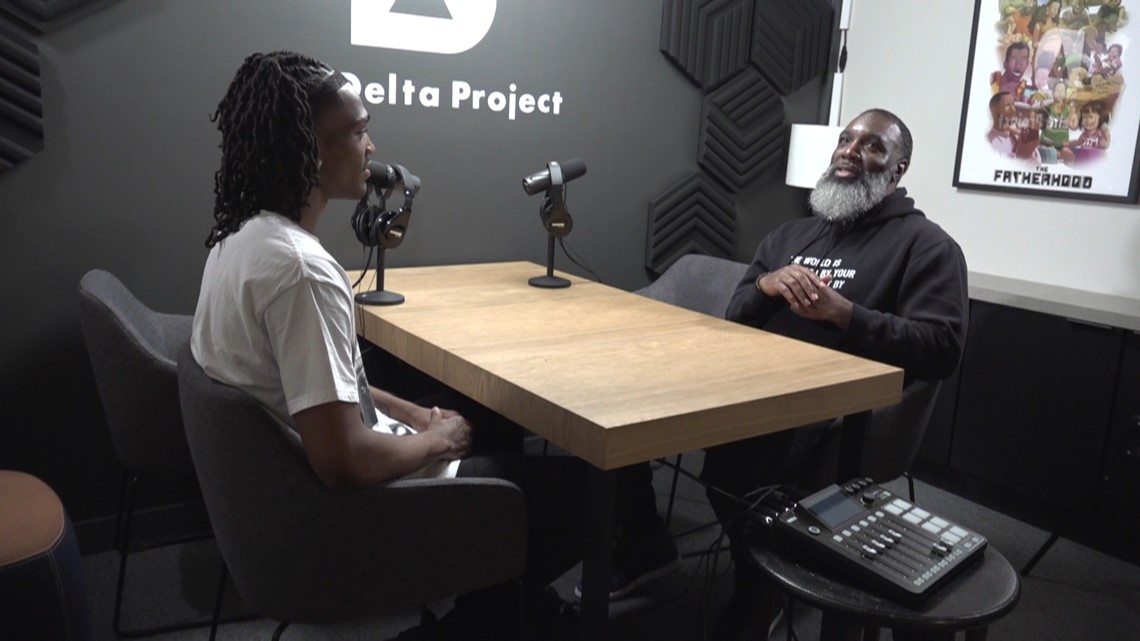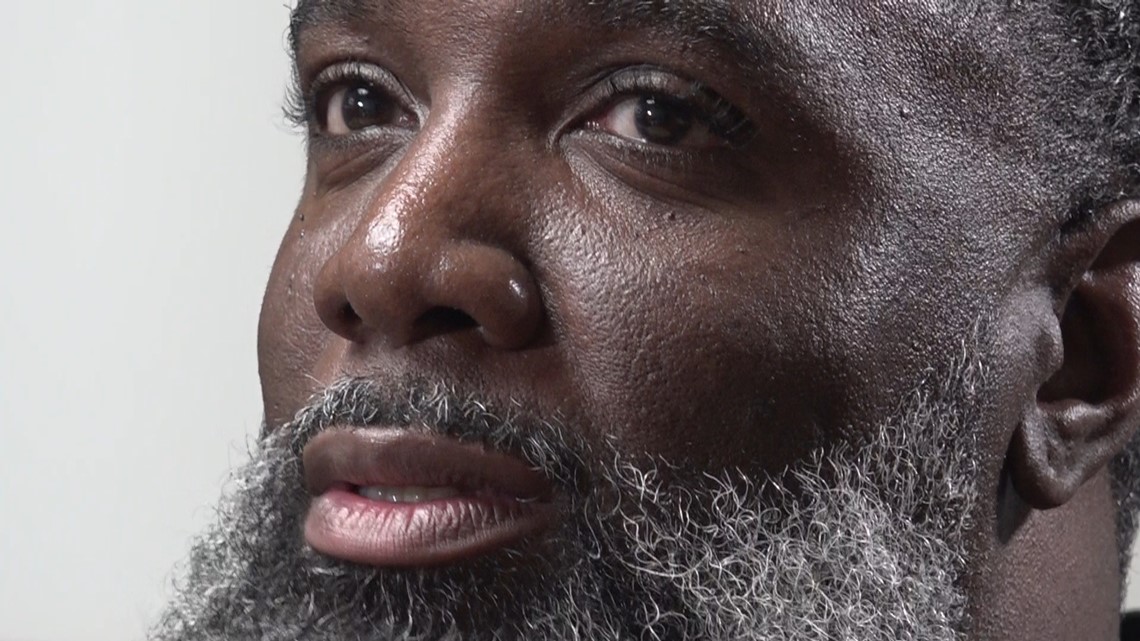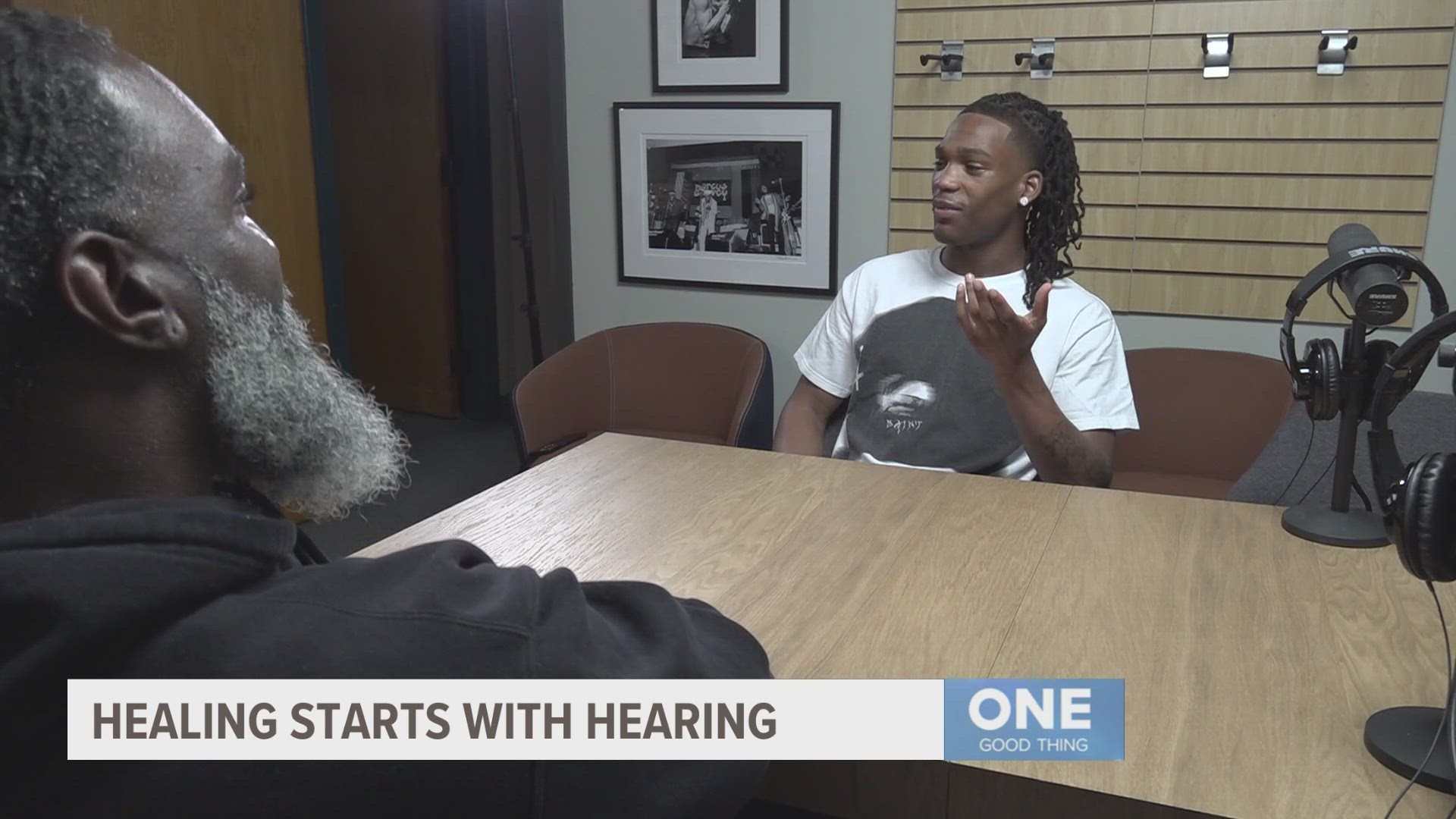GRAND RAPIDS, Mich. — Inside an office building on Wealthy Street is a room dedicated to storytelling. There's acoustic foam, several microphones and headphones, a mixer, and chairs situated across from each other in a way that encourages conversation.
Inside this room, 19-year-old Davenport University student Bilal Al-Raed is telling stories on a podcast that's part of The Delta Project. He discusses his initial application to major in business marketing, and why he now thinks he'd like to go into writing. He talks about the unique approach he took when a professor asked him to write a 150-word essay about who he is.
He also talks about the difficult road it took to even get to this point.
Bilal entered the juvenile justice system when he was 13 years old, and the system would remain a part of his life throughout most of his teenage years. He didn't get to go to homecoming or prom. He did time in the county jail and was at one point transferred to a facility in Pennsylvania.
During his time in the juvenile justice system, Bilal met Cole Williams, who taught classes in juvenile detention every Friday. In Cole, Bilal saw a type of representation that he never had the chance to experience before.
"I ain't never been around a Black man who presented himself like how he did. I never had no Black teacher. I never had no Black man articulate themselves how he did. He came in well-groomed, smelling good. It was definitely his presence and his aura for sure," Bilal told 13 ON YOUR SIDE.


Cole told the young people he was talking to "If you don't read, read. If you don't write, write." It was a message Bilal admits didn't sink in right away. But when Bilal started losing hope that he'd ever go home again, he knew he'd need to do something different.
"I saw a poetry book and I'm like 'I'm not reading that. That's crazy.' I don't know why, but I picked it up, and I started flipping through it, not even reading, and I landed on this one poem by some British poet. I can't even pronounce his name. And I just started reading and I'm like 'Dang, this is deep. I could do that.' I tried to copy what he was doing, and ever since then, I've been writing," Bilal said.
Bilal says his faith was another big part of his journey.
"What grounds me and keeps me centered and knowing that I have a sense of place, a sense of being, is Islam, for sure. I'm Muslim, and I take a lot of pride in that. My prayers—I don't miss them," he said.
Bilal returned home to West Michigan in June of 2023. He eventually reunited with Cole, who originally got involved with the juvenile justice system after his own son became a part of it years ago.
"We had a crisis plan that supported his mental health. If he dysregulated and acted out aggressively, part of the plan was to call the police. There was no psychiatric team at the time to call for crisis support. So I called the police, and the police came. At the time, when I called the police, my hope was that they would scare him into acting right. I was really desperate as a parent because I didn't have a whole bunch of resources to rely on," he said.
"They arrested him. They sent him to a detention center. I didn't even know where the detention center was to be honest with you. I showed up for a preliminary hearing. I hadn't seen him in a couple of days. I sat with him, and we both started crying, and I instantly thought I've made a mistake, because now he's entered a system that I know nothing about."


Cole went into the detention center and spoke to the superintendent so he could learn more about what was happening inside the walls of the center.
"There was an opportunity as a professional to come in and work with young people in that space. So I started teaching on Fridays, a life skills course for kids in the detention center. And I think, really, that's where my life changed," he said.
"I started seeing young men that looked like me. Ninety percent of the classroom represented Black and brown young people. And that was alarming to me, because it aligned with the statistics that I read about, but also, now my son was named in this, and my son was a very real person."
Inside the detention center, Cole saw men and women who were staying late to work with kids who society had put labels on. A few of those labels, Cole said, included "super predators", "major delinquents", and "failures to our community." But Cole didn't see the kids that way.
"I was surrounded by kids who were full of potential, but also I was surrounded by narratives and stories that also painted a really dark side of what was happening to kids in our juvenile justice system. And these narratives weren't true to the kids that I was working alongside and seeing every Friday," he said.
"It was also not true to the staff that I saw that were assigned to working with kids, both in the detention center, but also on probation. So for me, I wanted to be able to tell the story of what I'm actually seeing in these spaces, and that's really how The Delta Project got started."
Through the Delta Project and its podcasts, Cole and his partner Joel Van Kuiken help lift the voices of young people. They say it's an important part of creating a better future for them.
"What we really want to do is highlight the lived experiences of young people and adults who have experienced the juvenile justice system and the criminal justice system, or any system where they felt like their voices haven't been heard, but they want to make an impact and change," Cole said.
"We have a boys-to-mentors program centered around group mentoring and support for kids in the juvenile justice system as well in our high schools. We've got a healthy connections program that supports young women, also young men who are in our juvenile justice program by way of the jail. And then we have our future skills program that supports kids with everything associated with podcasts, storytelling, media, writing—all of the things that we'll have them to create an opportunity for them to be able to tell their story."
Bilal is one of the young people who has had the chance to tell his story through The Delta Project. He also has had the chance to mentor young people in the program, who are on a similar path to the one he's experienced.
"When I go in and I see them, I see their style and how they carry themselves, how they talk. I just see me. I'm just trying to spark change," Bilal said.
"I was in there the other day and one of the kids said 'I look up to you.' That was big for me, but at the same time I was like, 'Be better than me. Don’t look up to me. Don’t idoloize me.' It did feel good though, to have somebody say that."
The Delta Project will be holding a gratitude concert fundraiser on May 11 at 6 p.m. at the Wealthy Theater in Eastown to celebrate success stories like Bilal's. Grammy Award-winning reggae artist Mykal Rose will be performing. Tickets are $35 in advance or $40 at the door. If you'd like to help the Delta Project, they also have a donation page on their website.
Do you have a deeply personal story with a call to action? That's what One Good Thing is all about! Email your story ideas to OneGoodThing@13OnYourSide.com.
►Make it easy to keep up to date with more stories like this. Download the 13 ON YOUR SIDE app now.
Have a news tip? Email news@13onyourside.com, visit our Facebook page or Twitter. Subscribe to our YouTube channel.
Watch 13 ON YOUR SIDE for free on Roku, Amazon Fire TV Stick, Apple TV and on your phone.

